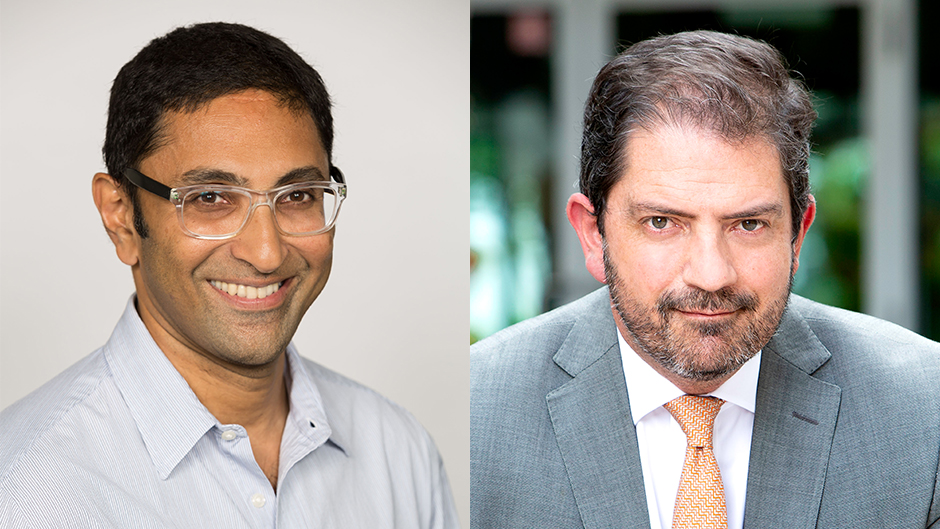It was recently announced that Miami Law Professor and Dean's Distinguished Scholar Kunal Parker and Associate Professor Pablo Rueda Saiz received the 2023 Provost's Research Awards.
The awards provide both salary support and support for direct research costs. Internal funding programs are designed to foster excellence in research and creative scholarship at the University of Miami.
The funding will support Parkers's study of race, citizenship, and movement in the U.S. and Rueda Saiz's research into the mobilization of Amazonian Indigenous campaigns against oil.
"I am delighted to receive a Provost's Research Award to support what I believe will be new research into the tangled history of race, citizenship, and movement in the United States," said Parker.
Over the past 20 years, Parker said, historians have shown that the antebellum United States was a social and legal world of multiple statuses, territorial borders, and restrictions on presence and movement. This has completely revolutionized our understanding of the history of immigration and citizenship law, which had traditionally taken as its starting point the federal assumption of control over immigration in the 1870s and 1880s.
Collectively, historians of the antebellum United States destroyed the "open borders" myth before 1880. His previous research — notably his book "Making Foreigners: Immigration and Citizenship Law in America, 1600 – 2000" (Cambridge University Press, 2015) — has contributed to this revised understanding.
Parker aims to write a socio-legal history to advance the collective understanding of antebellum ideas of membership, presence, and movement relative to current scholarship and his previous research.
Rueda Saiz's project, "Explaining Divergence in Transnational Legal Mobilization in Amazonian Indigenous Campaigns Against Oil," explores how Amazonian Indigenous movements have used law transnationally against oil extraction from their territories. Indigenous peoples worldwide have mobilized against oil using different tactics and tools. A common tactic has been mobilizing the law and legal institutions. However, Indigenous movements have used the law differently and with other consequences.
The literature on law and social movements has investigated the causes and effects of litigation but has yet to explain the variations in legal mobilization. This project helps close this gap by explaining the variations in three campaigns: the campaigns of the U'wa Indigenous peoples of Colombia against Occidental Petroleum; the Achuar, Shuar, and other communities of Ecuador against Chevron; and the Ashuar people of Peru against Occidental. It explains variation along three basic dimensions: the campaigns' tactics, targets, and consequences.
Although this project is in conversation with others that explored Indigenous mobilization against oil extraction in the Amazon, it advances by focusing on Indigenous peoples' agency as transnational legal actors and enhances the generalizability of its results through a cross-national comparison. He expects to publish at least one peer-reviewed article from this project.
"From Myanmar to Nigeria, to the northern United States and Amazon, Indigenous peoples have mobilized against oil using different tactics and tools," said Rueda Saiz. "Some campaigns have resorted to legal tactics, both domestically and transnationally. This project will help us understand the role that law plays in the campaigns of the Amazon, and what we can do as lawyers to help, both in the global North and in the global South."

